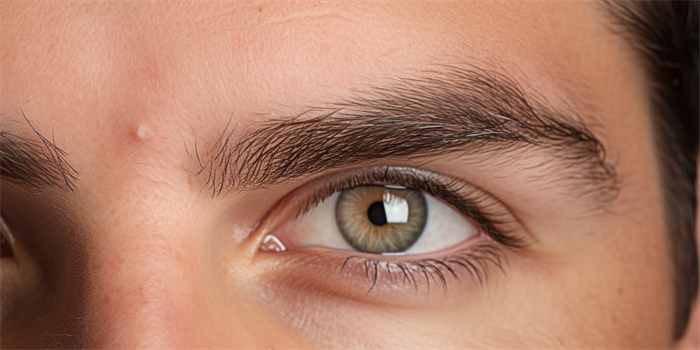The desire for beautifully shaped eyebrows has led to numerous advancements in brow enhancement techniques. One revolutionary method that has gained significant popularity is top-up microblading, which offers natural-looking results. This technique has transformed the way people enhance their brows, providing a long-lasting solution that mimics the appearance of real eyebrows. In this article, we will explore the various aspects of top-up microblading, including its procedure, benefits, aftercare, and more.

The Procedure
Top-up microblading is a semi-permanent tattooing technique that involves depositing pigments into the upper layers of the skin to create the illusion of individual eyebrow hairs. The process begins with a consultation, during which the client and microblading artist discuss desired brow shape, color, and thickness. Once the desired look is agreed upon, the artist will use a microblade tool to make small incisions in the skin and deposit the pigments.
This technique requires meticulous precision and expertise, as the strokes need to mimic the natural growth pattern of eyebrow hairs. The procedure typically takes around 2-3 hours to complete, with touch-up sessions recommended a few weeks later to perfect the results and ensure longevity. Top-up microblading is considered minimally invasive and is usually performed under topical anesthesia to minimize discomfort.
The Benefits
There are several benefits to opting for top-up microblading compared to traditional eyebrow enhancement methods. Firstly, the results of top-up microblading are incredibly natural-looking, making it difficult to distinguish between the microbladed brows and real eyebrows. This makes it an excellent choice for individuals who have sparse or thinning brows or those who have lost their eyebrows due to medical conditions.
Another advantage is the longevity of the results. While the exact duration varies from person to person, top-up microblading typically lasts for 1-3 years before requiring a touch-up. This eliminates the need for daily eyebrow makeup application and saves valuable time in the beauty routine. Additionally, top-up microblading is waterproof and smudge-proof, ensuring that the brows remain intact even during activities like swimming or exercising.
Aftercare
After undergoing top-up microblading, it is crucial to follow proper aftercare instructions provided by the microblading artist. The healing process takes approximately 4-6 weeks, during which time the color of the brows may appear darker or more intense. It is important to avoid excessive sweating, sun exposure, and rubbing the brow area to prevent pigment loss or complications.
Moisturizing the brow area with recommended ointments and avoiding harsh facial cleansers or exfoliators is also essential during the healing period. Additionally, it is advisable to avoid activities such as swimming or saunas until the brows are fully healed. Regular touch-up sessions every 12-18 months are recommended to maintain the desired look and ensure the longevity of the results.
The Cost
The cost of top-up microblading varies depending on factors such as the location, reputation of the microblading artist, and additional services offered. On average, top-up microblading can cost between $400 to $800. The price range may differ in different regions, for example, in urban areas, prices may be slightly higher compared to suburban or rural areas where the cost of living is lower.
Frequently Asked Questions
1. Is top-up microblading suitable for everyone?
Top-up microblading is suitable for most individuals, including those with sparse or thinning eyebrows and those looking for a more defined brow shape. However, it is recommended to consult with a microblading artist to determine if you are a suitable candidate based on your specific circumstances.
2. How long does top-up microblading last?
The results of top-up microblading typically last between 1-3 years. Regular touch-up sessions every 12-18 months are recommended to maintain the desired look and prolong the longevity of the results.
3. Does top-up microblading require any downtime?
While there is no significant downtime associated with top-up microblading, there is a healing period of approximately 4-6 weeks where proper aftercare is crucial. During this time, it is important to avoid excessive sweating, sun exposure, or rubbing the brow area to ensure optimal healing and pigment retention.
4. Can top-up microblading be removed if desired?
Top-up microblading is considered semi-permanent, and the pigments gradually fade over time. However, if removal is desired, there are various removal techniques available, such as laser tattoo removal or saline solution removal. Consultation with a professional is recommended for removal procedures.
5. Is top-up microblading painful?
Top-up microblading is typically well-tolerated by most individuals. Topical anesthesia is applied to minimize any discomfort during the procedure. Sensations during the process are often described as slight scratching or mild pressure.
Conclusion
Top-up microblading has revolutionized the field of eyebrow enhancement by providing natural-looking results that last for an extended period. With its ability to mimic real eyebrow hairs, this technique offers a convenient and time-saving alternative to daily makeup application. However, it is essential to choose a skilled and experienced microblading artist and follow proper aftercare instructions to achieve optimal results. So, if you're seeking flawless, long-lasting eyebrow enhancement, top-up microblading may be the perfect solution.




